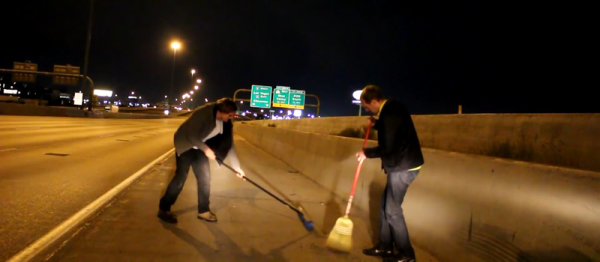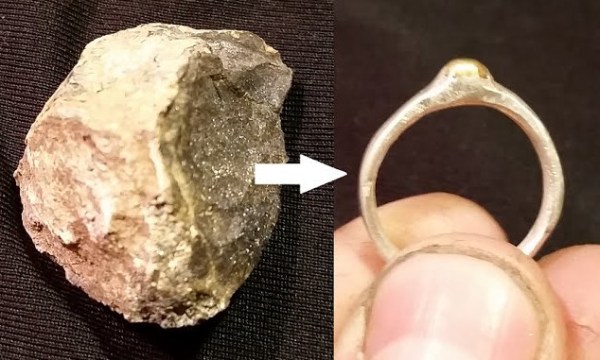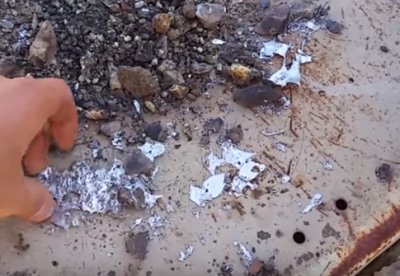For several decades now all petrol-driven motor vehicles have had to feature a catalytic converter in their exhaust systems to meet the requirements of emissions legislation. These feature a high surface area coated with platinum, palladium, and rhodium, which catalyses the high-temperature breakdown of the exhaust gasses.
When a vehicle reaches the end of its life its catalytic converter is recycled and those metals are recovered, but this recovery does not account for all the metal. [Cody Reeder] noticed that the weight of platinum in a catalytic converter taken from a scrap vehicle is significantly less than that of a new one. Some of that metal has escaped, so where has it gone?
The answer to that question is that it has become detached from the converter and blown out through the rear of the exhaust pipe. Therefore in the area around a busy highway with many thousands of cars passing there must be a reasonable concentration of platinum. The video below the break details [Cody]’s quest to verify that theory, and it opens with him and a friend sweeping dust from beside a freeway in the early hours. The resulting bags contain a lot of gravel and bits of tire, plus a few cigarette butts and a large amount of very fine dust. He sieves away the debris, and heats a sample of dust in a furnace with a flux mixture containing lead oxide. He hopes that as this oxide degrades to metallic lead it will dissolve any platinum and settle in the bottom of his crucible, and indeed when he pours out the resulting slag there is a bead of lead. Taking away the lead reveals a speck of impure platinum, which he further purifies and assays to determine the percentage of platinum and to detect the other catalyst metals.
He finally arrives at a figure of 6.7 g per ton of his fine-sifted roadside dirt “ore”, a figure which as he points out would be considered quite valuable were it to be encountered in a mine. His process might be a little difficult for individuals with sweeping brushes to hit pay dirt and a modern gold rush to descend on their local Interstate, but it’s not impossible that a highways agency equipped with sweeper trucks could have the metal extracted at a more profitable level.



 First, [Cody] crushed the rock down to marble size using his homemade rock crusher. Then he roasted the rock in a tire rim furnace. The ore was so rich in lead and silver that the some of the metal just dropped right out, forming splatters on the ground beneath the furnace. [Cody] then ball milled the remaining rock to a fine powder and panned out the rest of the lead. At this point the lead and silver were mixed together. [Cody] employed
First, [Cody] crushed the rock down to marble size using his homemade rock crusher. Then he roasted the rock in a tire rim furnace. The ore was so rich in lead and silver that the some of the metal just dropped right out, forming splatters on the ground beneath the furnace. [Cody] then ball milled the remaining rock to a fine powder and panned out the rest of the lead. At this point the lead and silver were mixed together. [Cody] employed 








